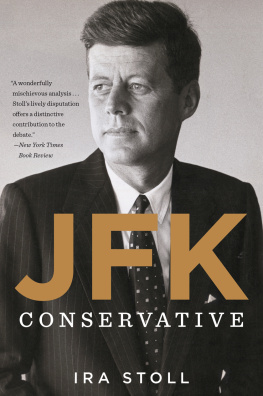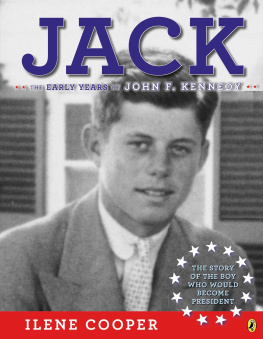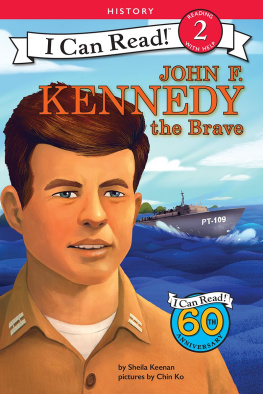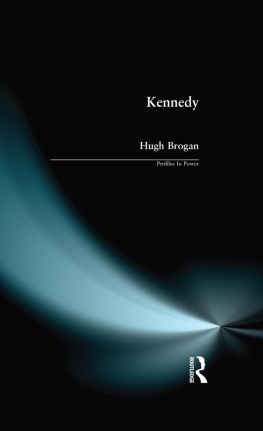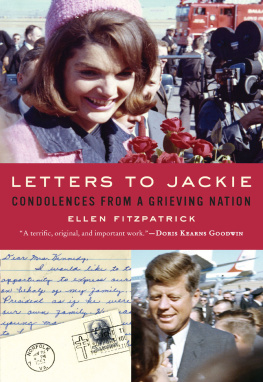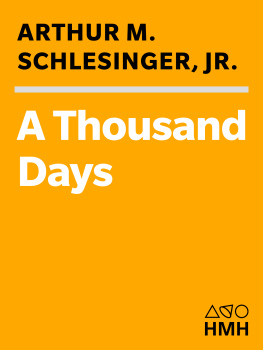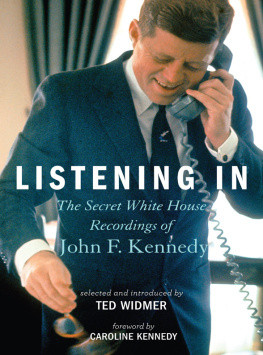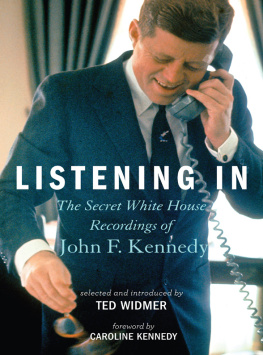Kennedy John F. - The Letters of John F. Kennedy
Here you can read online Kennedy John F. - The Letters of John F. Kennedy full text of the book (entire story) in english for free. Download pdf and epub, get meaning, cover and reviews about this ebook. City: London, year: 2015;2013, publisher: Bloomsbury Publishing Plc, genre: Detective and thriller. Description of the work, (preface) as well as reviews are available. Best literature library LitArk.com created for fans of good reading and offers a wide selection of genres:
Romance novel
Science fiction
Adventure
Detective
Science
History
Home and family
Prose
Art
Politics
Computer
Non-fiction
Religion
Business
Children
Humor
Choose a favorite category and find really read worthwhile books. Enjoy immersion in the world of imagination, feel the emotions of the characters or learn something new for yourself, make an fascinating discovery.

- Book:The Letters of John F. Kennedy
- Author:
- Publisher:Bloomsbury Publishing Plc
- Genre:
- Year:2015;2013
- City:London
- Rating:3 / 5
- Favourites:Add to favourites
- Your mark:
- 60
- 1
- 2
- 3
- 4
- 5
The Letters of John F. Kennedy: summary, description and annotation
We offer to read an annotation, description, summary or preface (depends on what the author of the book "The Letters of John F. Kennedy" wrote himself). If you haven't found the necessary information about the book — write in the comments, we will try to find it.
The Letters of John F. Kennedy — read online for free the complete book (whole text) full work
Below is the text of the book, divided by pages. System saving the place of the last page read, allows you to conveniently read the book "The Letters of John F. Kennedy" online for free, without having to search again every time where you left off. Put a bookmark, and you can go to the page where you finished reading at any time.
Font size:
Interval:
Bookmark:


For many of us, it is almost impossible to believe that more than fifty years have passed since John F. Kennedy entered the White House, the youngest man ever elected president of the United States. It is perhaps even more startling to realize that an enormous percentage of our population has no personal recollection of the man who inspired Americans of all agesyoung Americans especiallyand captivated the imaginations of people around the world.
The man they called JFK was the most visible president the United States had ever had. Thanks to his movie-star good looks, his charisma, and the way in which he regarded photography not with the wariness displayed by almost all his predecessors, but as an ally, he became the most photographed person in the world. It was no accident that it was Kennedy who created the position of official White House photographer.
Even more than photography, however, it was television that endowed Kennedy with a visibility that no previous leader in world history had ever attained. John Kennedy was Americas first television president, and from the beginning it was obvious that he and the medium were made for each other. Almost everything that took place in his presidencyhis speeches, his cold war battles, his motivation of the nations young peoplewas molded by his understanding of the ways in which television, unlike anything that had ever come before it, could both shape and sway public opinion.
Before Kennedy, no American president had dared to conduct televised press conferences live without delay or editing. Kennedy not only did so but he elevated them to an art form. By the time his presidency came to a tragic halt, he had held sixty-four news conferences, an average of one every sixteen days. The first of these events, which took place less than a week after his inauguration, was viewed by sixty-five million people. From the first, Kennedys press conferences revealed his quick intelligence and his understanding and command of the issues. And there was something morea wit and sense of humor rarely witnessed since Abraham Lincoln graced the White House.
Yet for all John Kennedys good looks and telegenic charm, at his core he was a reader and a writer. Indeed, he was among the best-read and most articulate presidents the United States has ever had. Kennedy could read more than twelve hundred words a minute. Before he had entered the Navy, he had begun carrying a loose-leaf notebook with him in which he wrote sentences he felt were important to remember. While still a Harvard undergraduate he wrote a thesis that would become a bestselling book, and his second book earned him a Pulitzer Prize. As biographers Robert Dallek and Terry Golway have reminded us, He did not speak in sound bites. The phrase had not yet been invented. He spoke in literate paragraphs, and his speeches were filled with references to history and literature that have all but disappeared from American political discourse. It is the premise of this book that one can discover more about Kennedy the man, Kennedy the president, and the extraordinary and harrowing times in which he lived by reading his correspondence than through any number of the scores of books that have been written about him.
President Kennedys claim on history does not rest merely on charisma or eloquence, however. As historian Richard Reeves has written, There was an astonishing density of events during the Kennedy years. If anything the remark is an understatement. The global contest between the United States and the Soviet Union that dominated every day of the Kennedy presidency could well have resulted in nuclear war, particularly over such issues as the divided city of Berlin or the placement of Soviet missiles in Cuba. At the same time, Kennedy was forced to grapple with protests, riots, and bloodshed that accompanied African Americans unceasing struggle for rights and opportunities long denied. And, in a country called South Vietnam that few Americans had ever heard of, events were taking place that would present him with problems that promised only to get worse.
Despite the fact that from his earliest childhood until the day he died he was far more ill than the public would ever know, Kennedy met all these challenges with an energy that never failed to astound those around him. Reporting on one of the presidents typical days, the New York Timess James Reston wrote, He did everything today except shinny up the Washington Monument. A United States senator stated, When you see the President, you have to get in your car and drive like blazes back to the Capitol to beat his memo commenting on what you told him.
Kennedy regarded drive and energy, or vigor, as one of mans two most admirable qualities. The other was courage. Everyone admires courage, he was fond of saying, and the greenest garlands are for those who possess it. It was no coincidence that the title and theme of the book that propelled him into the national eye was Profiles in Courage.
All of those qualities were accompanied by another trait that would surprise those who had known him in his playboy prep school and Harvard days. In his inaugural address he inspired the world when he pledged that he and the nation would pay any price, bear any burden, meet any hardship, support any friend, oppose any foe to assure the survival and success of liberty. In his June 26, 1963, speech at the Free University of Berlin, an address that may well have been his finest, he stated Life is never easy. Theres work to be done and obligations to be metobligations to truth, to justice, and to liberty. It would be this unwavering sense of duty which would perhaps define him best of all.
That and something else. Commenting on how he felt history would judge Kennedy, his close aide Theodore Sorensen wrote, History will surely record that his achievements exceeded his years. In an eloquent letter to President Kennedy on nuclear testing, Prime Minister Macmillan once wrote, It is not the things one did in ones life that one regrets, but rather the opportunities missed. It can be said of John Kennedy that he missed very few opportunities.
Macmillans letter was but one of more than two million that flowed in and out of the White House during President John F. Kennedys all-too-brief one thousand days in office. The vast majority of letters in this volume are housed in the John F. Kennedy Presidential Library and Museum, one of the worlds richest and most accessible repositories of its kind. This massive collection encompasses papers from not just Kennedys presidency but his whole life, as well as from other Kennedy family members and other members of his administration. Letters came to Kennedy from people from every walk of life and dealt with almost every subject imaginable, from the Vietnam War to physical fitness.
The Kennedy correspondence includes jocular letters to friends and family, formal missives to heads of state, and ringing declarations of principle, but all of it is revealing. No sequence of letters is more absorbing, or more important, than the long, ongoing secret correspondence between Kennedy and Soviet chairman Nikita Khrushchev. It provides insight into the personalities and leadership styles of two men miles apart in ideological beliefs, but trying desperately, together, to steer a path to safety along the lip of a nuclear volcano. It is not too much to say that this so-called pen pal correspondence became a critical factor in preventing the world from being literally blown apart.
Next pageFont size:
Interval:
Bookmark:
Similar books «The Letters of John F. Kennedy»
Look at similar books to The Letters of John F. Kennedy. We have selected literature similar in name and meaning in the hope of providing readers with more options to find new, interesting, not yet read works.
Discussion, reviews of the book The Letters of John F. Kennedy and just readers' own opinions. Leave your comments, write what you think about the work, its meaning or the main characters. Specify what exactly you liked and what you didn't like, and why you think so.

